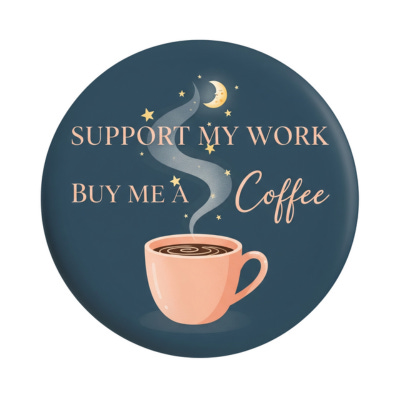Maybe you’re like me and when you hear the word strength you think crunches and planks and squats (and yes, I have been trying to incorporate those lately into my days).
Strength might also look like to you: powering through, not giving up, filling yourself up with grit and determination ‘til you’re ready to explode. (This is all me, to a tee). And that’s the version of resilience that gets the most screen time/air time/airwaves/words, right?
It’s the inspiring stories of people fighting back against the odds. It’s the poster-child of perseverance. It’s dramatic, in-your-face, inspiring, uplifting — the human spirit shining through. It’s that version of you that shows up, even on the hardest days, gritting your teeth, drinking your coffee black, squeezing in that workout and insisting, “I’m fine, everything’s good, I just need to keep going, keep moving forward.”
And 100% that’s one kind of strength.
But there’s another kind I often forget — the kind my mindfulness practice keeps nudging me toward.
The kind that doesn’t always look strong — at least not at first glance.
The kind that listens and observes — deeply. That knows that running on all cylinders 24/7 isn’t a way to live, and instead it chooses a slower rhythm. It’s the kind that says no, not because it’s weak, but because it’s wise.
I keep learning — and re-learning — that sometimes the most courageous thing we can do is rest (and boy do I feel guilty about that! Which I know is ridiculous. And that’s just a product of our ‘go-go-go, have to always be hustling and be productive to have any kind of worth’ modern society).
But I need to remind myself — so this article is just as much for me, as it is for me to share this reminder with all of you — we need to remember the flip side. That we can be more productive, and stronger, and healthier and more resilient if we slow down once in a while. Stop to smell the coffee, or the roses or whatever you want to smell when you slow down and take a moment.
The Quiet Kind of Resilience
Resilience isn’t just about how quickly we bounce back - even though that’s an often bandied about definition. To me, it’s about how well we recover. And recovery doesn’t happen in motion — it happens in stillness. It happens when we stop pushing.
In neuroscience, this is tied to what’s called the parasympathetic nervous system — the “rest and digest” counterpart to our more famous fight-or-flight response. When we’re in a state of chronic stress (hello, modern life), our sympathetic nervous system is in overdrive. Cortisol runs the show. Our body stays braced.
I mention this a lot at the start of many of my yoga classes that I teach at my workplace. At the start of class I do a grounding session — connecting with the body and the breath and I mention that we’re flipping the switch from the sympathetic fight/flight/freeze system that we’re in most of the time, to what I say in my class ‘yoga mode’ and moving into the parasympathetic.
And here's the kicker: resilience isn’t built when we’re in survival mode.
It’s built when we feel safe again. When our bodies get the signal: you can let go now. It’s also the time, if you’re a physically active person (like you workout a lot or do stuff that’s demanding on the body like running) that your body has a chance to heal and therefore get stronger. It’s not during the actual working out/exercising that our physical bodies get stronger - it’s during the periods when we rest and recover (are you listening, Caitlin? Are you??)
That’s where rest comes in — not as a luxury, but as a biological imperative.
The Science of Slowing Down
Let’s talk about the brain for a moment (yay brain science! I love the subject of neuroscience). The prefrontal cortex — our brain’s CEO, the part responsible for planning, reflection, and compassion — goes offline when we’re chronically stressed or sleep-deprived (which is why, when I was grieving the loss of my Mom in the early days after her death, I couldn’t remember a lot of stuff — grief brain is real).
But you know what also else gets harder? Empathy. Creative thinking. Emotional regulation. (So if you’ve ever cried over spilled oat milk after three too many nights of broken sleep (or me burning soup - soup!) — you’re not alone. That’s just science.(Thanks, brain, for fleeing the scene when we need you to help us out!)
But by choosing rest — and I mean real nourishing rest — we’re giving the brain space to recalibrate. We're literally rewiring our ability to cope, to connect, and to continue continuing on.
So here’s a reminder for anyone who needs to hear it (read: me):.
Rest is not quitting. It’s resource management. It’s putting our bodies into Battery Saver mode.
Permission to Be Human
There’s something revolutionary about choosing softness and slowness in our world that is all about the hustle and grind and rat race. And yet this is deeply human. We are not machines. No matter how much we might feel like we are, sometimes. We’re living ecosystems. We have limits.
Psychologist Kristin Neff, a leading researcher on self-compassion, writes about the difference between self-esteem and self-compassion. Where self-esteem depends on success, self-compassion makes room for imperfection. For being human.
And what’s more human than needing rest? What’s braver than honouring that?
Rest as Rebellion, Rest as Repair
Rest isn’t just a pause; it’s a reconnection — to who we are, not who we think we’re supposed to be.
And for those of us moving through grief, burnout, illness, heartbreak — all of that stuff that is draining and exhausting and where the world (read: society) often rushes us to get “back to normal” (especially with grief!). But there is no time limit on healing. No shortcut. Only recognizing, slowing down, honouring where you are.
This is the resilience I want to practice:
The kind that listens before acting.
That makes space for joy even when things are messy.
That knows healing isn’t linear — and doesn’t need to be.
A Practice: The Rest Inventory
If you want a simple way to begin, here’s something I do when I feel like I’m running on fumes:
Ask yourself: What kind of rest do I need right now?
(Yes, there’s more than one.)
Here’s the 7 types of rest according to Dr. Saundra Dalton-Smith’s work on rest:
Physical rest (Do I need to lie down? Sleep? Stretch?)
Mental rest (Is my brain tired from too much info or decisions? With decisions it’s called decision fatigue)
Emotional rest (Am I holding space for everyone but myself?)
Social rest (Do I need solitude — or nourishing connection?)
Creative rest (Do I need inspiration without pressure?)
Sensory rest (Is my nervous system overwhelmed by noise, screens, lights? (the answer is probably yes))
And lastly (but not least):
Spiritual rest (connecting to a deeper feeling of belonging to something bigger than yourself and a sense of meaning and purpose).
But just a(nother) reminder: you don’t have to fix everything at once —and you shouldn’t. Just start where you are. One step, one piece at a time. Break it down into manageable chunks (what’s called, not surprisingly, chunking). Do what you can. Even five minutes counts.
You Are Still Resilient
If you’re in a season in your life where rest feels like all you can manage, this is another reminder (yes, apparently I’m full of reminders today!): that is resilience. It may not look impressive. It may not earn applause. But it is important and valuable..
You're not lazy.
You're not behind.
You're not broken.
You’re rebuilding.
You’re protecting your spark, your energy, your essence – even if it’s just a flicker.
Take your time.
Let resilience look like rest.
The world can wait a minute while you take a moment to rest — and ultimately come back stronger.
With so much gentleness,
Caitlin
If this letter found you at the right time, feel free to share it with someone else who might need a little wonder today.
✨ Love this reflection?
You can download a beautifully simple 8-point infographic of the key ideas over in my Ko-fi shop. It’s pay-what-you-want — perfect as a gentle reminder, a journal page, or a quiet moment to come back to.
My Substack is free!
But if what you've read or heard resonated with you, maybe you'll consider supporting me for less than the price of a fancy coffee - just $3! - by clicking below or the ‘Support Me’ link at the top of my publication (doseofwonder.ca). Thank you for your support. With gratitude.
But wait!
If you’re interested in collaborating with Dose of Wonder and writing a guest post/ as a guest writer on this publication, where I will share your article with all my subscribers, and then you can cross-post and share it with your own subscribers for even more reads, check out this article here:
Do You Write About Mental Health*? If So, Join My Publication as a Guest Writer!
*And by Mental Health, I mean not just that but a bunch of other stuff that falls under that overall umbrella, and what I write about here in Dose of Wonder. Which is:
References:
The 7 types of rest that every person needs by Dr Saundra Dalton-Smith
https://ideas.ted.com/the-7-types-of-rest-that-every-person-needs/










I hadn’t considered the different kinds of rest before, it makes sense and helpful to distinguish between them. I like that rest is reconnection to who we are. Rest well.
I read this on a day when I really need to take physical rest. My brain is fighting it though. Thanks for the reminders.